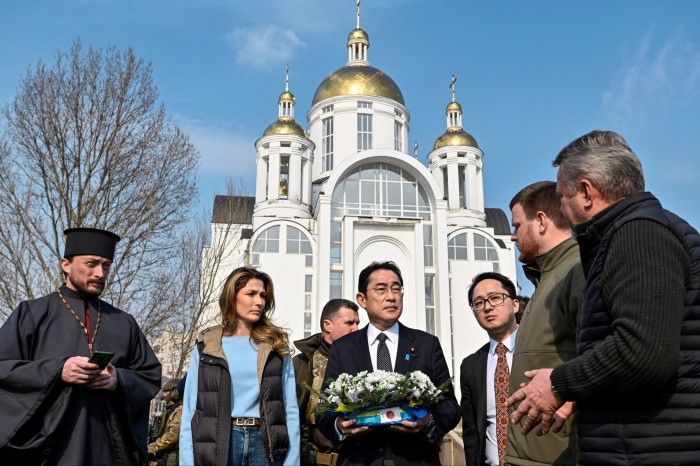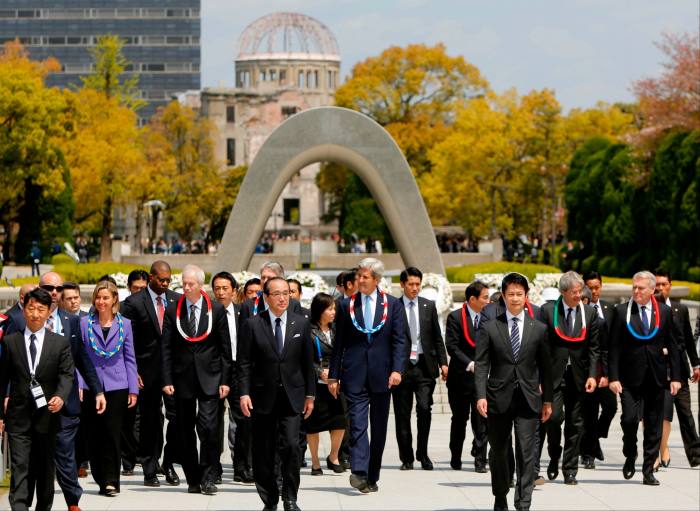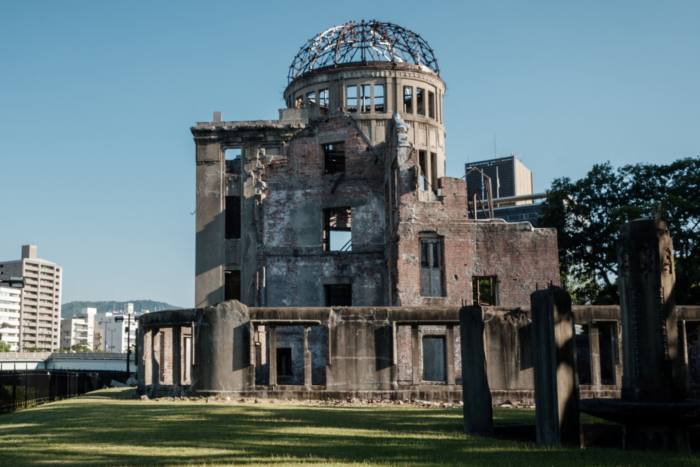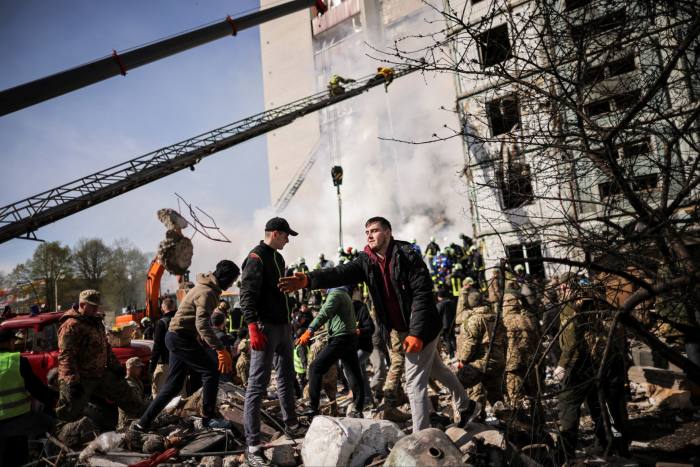[ad_1]

Back in 2016, when Fumio Kishida, then Japan’s foreign minister, took his G7 counterparts to the A-Bomb Dome in Hiroshima, he believed “this would be the first step towards the abolishment of nuclear weapons”.
But, seven years later, as he returns to his family’s home city to chair the G7 summit as prime minister, his dream of a world without nuclear weapons appears more distant than ever.
Since last year’s invasion of Ukraine, Russian president Vladimir Putin has made repeated threats about using nuclear weapons, while the growing arsenals of China and North Korea have underscored the continuing need for the US nuclear umbrella that helps to protect its allies including Japan.
“I do feel that the path towards a world without nuclear weapons has become even tougher than before,” Kishida admitted in a group interview last month. But he added that it was Japan’s responsibility as the only country to have ever suffered atomic bombings to “continue raising the banner of our ideals” to achieve the goal of nuclear abolishment.

However, with Kishida’s family roots in Hiroshima, where, on August 6 1945, at least 80,000 people died when the US became the first and only country to launch a nuclear attack, disarmament remains at the heart of his political career. Consequently, the topic is expected to feature prominently as leaders of the world’s most advanced economies gather this weekend.
The G7 countries — among which the US, France and the UK have nuclear arms — have already come under criticism after a meeting of foreign ministers last month failed to present new steps to eliminate nuclear weapons. Whether the main summit can deliver more concrete ideas will be closely watched, including by those in the host city of Hiroshima.
“We hope that [the G7] will be able to firmly outline a direction for the ultimate goal towards a world without nuclear weapons that does not rely on deterrence,” says Kazumi Matsui, mayor of Hiroshima city.

But the summit comes as G7 members are divided on a host of other key issues, ranging from tougher sanctions against Russia, to the US-China dispute, climate strategy, economic coercion, dealings with the Global South, and the rapid development of artificial intelligence.
And for Kishida, the stakes are high — both at home and internationally.
Since Russia launched its full-scale invasion of Ukraine in February 2022, the Japanese prime minister has repeatedly warned that it “might be east Asia tomorrow”. He has ended Tokyo’s decade-long courtship of Moscow and rolled out tough sanctions, while pushing through a significant rise in defence spending. In March, he made a surprise trip to Kyiv — the last G7 leader to do so, but a very rare example of a Japanese leader visiting a war zone.

Analysts say the G7 summit will now demonstrate whether Kishida has been successful in underscoring the risk of a potential conflict in Taiwan, and in laying the groundwork for a unified response if China follows through on its threat to take it by force.
“Any unilateral attempt to change the status quo by force must not be tolerated anywhere in the world. In addition, security in Europe and security in the Indo-Pacific are inseparable,” Yoshimasa Hayashi, Japan’s foreign minister, said in a written interview with the Financial Times. “At the G7 Hiroshima summit, we intend to . . . demonstrate G7’s determination to uphold the free and open international order based on the rule of law.”
Concerns had emerged over Europe’s stance on the issue after French president Emmanuel Macron, while on a trip to China last month, warned Europe should not get “caught up in crises that are not ours”.
Following an international backlash, Macron has since explained that he supported the status quo over Taiwan and wanted Europe to present a united front against China.
Nevertheless, the escalating dispute between the US and China has left many economies — including Germany and Japan — wrestling to work out a strategy that allows them to straddle both markets, even as concerns mount about Beijing’s military ambitions.
As a result, many G7 members are reluctant to name China at the summit in the context economic coercion — even as they discuss economic security measures such as strengthening supply chains to reduce reliance on Beijing.
Beyond the international consequences, a successful outcome for the G7 meeting would be likely to increase the chances of Kishida calling a snap election as early as the summer, to solidify his leadership. His term as head of the ruling Liberal Democratic party runs until September 2024.
While the prime minister has struggled to make his mark on domestic economic policies, his approval rating has improved in recent months on the back of his foreign policy successes including a rapprochement with South Korea.
With the world even more deeply divided following the global energy and food crisis sparked by the war in Ukraine, Kishida’s diplomatic skills will be tested. “China’s support for Russia in the war has driven a significant shift in European threat perceptions, and a re-evaluation of relations with Beijing, but there is still something of a gap,” says Christopher Johnstone, Japan chair at the CSIS think-tank and a former Pentagon official. “A key measure of success for Kishida at the G7 will be whether the leaders are able to deliver a strong and unified message on China, including related to Taiwan and economic coercion.”
[ad_2]
Source link

